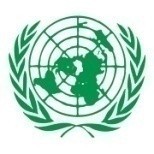
http://www.un.org
The United Nations is an international organization founded in 1945. The Headquarters is situated in Manhattan, New York City. It is currently made up of 193 Member States.
The organization is financed by assessed and voluntary contributions from its member states. Its objectives include maintaining international peace and security, promoting human rights, fostering social and economic development, protecting the environment, and providing humanitarian aid in cases of famine, natural disaster, and armed conflict.
Due to the powers vested in its Charter and its unique international character, the United Nations can take action on the issues confronting humanity in the 21st century, such as peace and security, climate change, sustainable development, human rights, disarmament, terrorism, humanitarian and health emergencies, gender equality, governance, food production, and more.
The UN has six principal organs: the General Assembly (the main deliberative assembly); the Security Council (for deciding certain resolutions for peace and security); the Economic and Social Council (ECOSOC) (for promoting international economic and social co-operation and development); the Secretariat (for providing studies, information, and facilities needed by the UN); the International Court of Justice (the primary judicial organ); and the United Nations Trusteeship Council (inactive since 1994).
By enabling dialogue between its members, and by hosting negotiations, the Organization has become a mechanism for governments to find areas of agreement and solve problems together.
The publications of UN include reports, compilation of statistics, records of some conferences, workshops and seminars, yearbooks, official records of major United Nations agencies, Treaty Collection, technical journals and communiqué.
1.UN Subordinate Agencies
(1) United Nations Children's Fund, UNICEF

http://www.unicef.org
The United Nations Children's Fund (UNICEF) is a United Nations Program headquartered in New York City that provides long-term humanitarian and developmental assistance to children and mothers in developing countries.
UNICEF was created by the United Nations General Assembly in 1946, to provide emergency food and healthcare to children in countries that had been devastated by World War II. In 1953, UNICEF became a permanent part of the United Nations System and its name was shortened from the original United Nations International Children's Emergency Fund but it has continued to be known by the popular acronym based on this previous title.
UNICEF relies on contributions from governments and private donors. Most of UNICEF's work is in the field, with staff in over 190 countries and territories. More than 200 country offices carry out UNICEF's mission through a program developed with host governments. Seventeen regional offices provide technical assistance to country offices as needed.
The main publication of UNICEF is The state of the world 's children.
(2)United Nations Conference on Trade and Development, UNCTAD
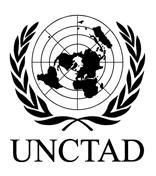
http://www.unctad.org
The United Nations Conference on Trade and Development (UNCTAD) was established in 1964 and is headquartered in Geneva, Switzerland.
UNCTAD is the principal organ of the United Nations General Assembly dealing with trade, investment, and development issues. The organization's goals are to maximize the trade, investment and development opportunities of developing countries and assist them in their efforts to integrate into the world economy on an equitable basis.
In addition, UNCTAD offers direct technical assistance to developing countries and countries with economies in transition, helping them to build the capacities they need to become equitably integrated into the global economy and improve the well-being of their populations.
The main publications of UNCTAD are Trade and Development Report, The Least Developed Countries Report World Investment Report, Handbook of International Trade and Development Statistics,Review of Maritime Transport. Among them, the Trade and Development Report and World Investment Report have extensive influence and reputation around the world. They are not only international authoritative sources, but also important reference for national policy makers.
(3)United Nations Development Programme, UNDP

http://www.undp.org
UNDP works in more than 170 countries and territories, helping to achieve the eradication of poverty, and the reduction of inequalities and exclusion. We help countries to develop policies, leadership skills, partnering abilities, institutional capabilities and build resilience in order to sustain development results.
World leaders have pledged to achieve the Millennium Development Goals, including the overarching goal of cutting poverty in half by 2015. UNDP's network links and coordinates global and national efforts to reach these Goals, and to strengthen post-2015 frameworks for development, disaster risk reduction and climate change as they help shape global sustainable development for the next 15 years.
The major publications of UNDP are the Human Development Report, Millennium Development Goals Report, UNDP 's Annual Report, etc.
(4)United Nations Economic Commission for Europe, UNECE

The United Nations Economic Commission for Europe (UNECE) was set up in 1947 by ECOSOC. It is one of five regional commissions of the United Nations. UNECE's major aim is to promote pan-European economic integration. To do so, it brings together 56 countries located in the European Union, non-EU Western and Eastern Europe, South-East Europe and Commonwealth of Independent States (CIS) and North America. All these countries dialogue and cooperate under the aegis of UNECE on economic and sectoral issues. However, all interested United Nations member States may participate in the work of UNECE. Over 70 international professional organizations and other non-governmental organizations take part in UNECE activities.
The major publications of UNECE include the Annual Report, UNECE Countries in Figures, Timber Committee Yearbook, Statistical Yearbook of the Economic appointed for Europe, etc.
(5)United Nations Economic and Social Commission for Asia and the Pacific, UNESCAP

http://www.unescap.org
The United Nations Economic and Social Commission for Asia and the Pacific (ESCAP) is the regional development arm of the United Nations for the Asia-Pacific region. Made up of 53 Member States and 9 Associate Members, with a geographical scope that stretches from Turkey in the west to the Pacific island nation of Kiribati in the east, and from the Russian Federation in the north to New Zealand in the south, the region is home to 4.1 billion people, or two thirds of the world’s population. This makes ESCAP the most comprehensive of the United Nations five regional commissions, and the largest United Nations body serving the Asia-Pacific region with over 600 staff.
Established in 1947 with its headquarters in Bangkok, Thailand, ESCAP works to overcome some of the region’s greatest challenges by providing results oriented projects, technical assistance and capacity building to member States in the following areas:
• Sustainable Development
• Macroeconomic Policy and Development
• Trade and Investment
• Transport
• Social Development
• Environment and Development
• Information and Communications Technology
• Disaster Risk Reduction
• Statistics
• Sub-regional activities for development
The main publications of UNESCAP include: annual publications Statistical Yearbook for Asia and the Pacific, Economic and Social Survey of Asia and the Pacific and Asia - Pacific in Figures; book series Mineral Resources Development Series; journals Asia - Pacific Trade and Investment Review (biannual), Statistical Indicators for Asia and the Pacific (quarterly), Asia - Pacific Development Journal (biannual), Asia - Pacific Population Journal (quarterly), and Statistical Newsletter (quarterly).
(6)United Nations Economic Commission for Latin America and the Caribbean , UNECLAC
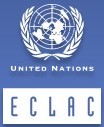
http://www.eclac.cl
The Economic Commission for Latin America (ECLA) -the Spanish acronym is CEPAL- was established by Economic and Social Council resolution 106(VI) of 25 February 1948 and began to function that same year. The scope of the Commission's work was later broadened to include the countries of the Caribbean, and by resolution 1984/67 of 27 July 1984, the Economic Council decided to change its name to the Economic Commission for Latin America and the Caribbean (ECLAC); the Spanish acronym, CEPAL, remains unchanged.
ECLAC, which is headquartered in Santiago, Chile, is one of the five regional commissions of the United Nations. It was founded with the purpose of contributing to the economic development of Latin America, coordinating actions directed towards this end, and reinforcing economic ties among countries and with other nations of the world. The promotion of the region's social development was later included among its primary objectives.
UNECLAC’s major publications include Statistical Yearbook, Economic Survey of Latin America and the Caribbean, Latin America and the Caribbean in the World Economy, and CEPAL Review.
(7)United Nations Economic Commission for Arica, UNECA

http://www.uneca.org/
Established by the Economic and Social Council (ECOSOC) of the United Nations (UN) in 1958 as one of the UN's five regional commissions, ECA's mandate is to promote the economic and social development of its member States, foster intra-regional integration, and promote international cooperation for Africa's development.
Made up of 54 member States, and playing a dual role as a regional arm of the UN and as a key component of the African institutional landscape, ECA is well positioned to make unique contributions to address the Continent’s development challenges.
The main publications of UNECA are Economic Report on influenza, African Youth Report and African Women’s Report, etc.
(8)United Nations Economic Commission for Western Asia, UNESCWA

http://www.escwa.un.org/
The Economic Commission for Western Asia (ECWA) was established on 9 August 1973 pursuant to the Economic and Social Council’s resolution 1818 (LV). The purpose of setting up the Commission was to raise the level of economic activity in member countries and strengthen cooperation among them. It was also intended to meet the need of the countries in Western Asia for the services of a regional economic commission to promote the development efforts in the region.
In recognition of the social component of its work, the Commission was entrusted with new responsibilities in the social field by virtue of Economic and Social Council resolution 69/ 1985 of July 1985. Its name therefore became the Economic and Social Commission for Western Asia (ESCWA).
ESCWA has been located in a number of Arab capitals. It started in Beirut (1974- 1982), moved to Baghdad (1982- 1991), then to Amman (1991- 1997), and returned to Beirut in 1997, its permanent headquarters.
UNESCWA’s main publications are Statistical Abstract of ESCWA Region, Bulletin on Vital Statistics in the ESCWA Region, Survey of economic and social developments in the ESCWA Region, National accounts studies of the ESCWA Region, etc.
(9)United Nations Entity for Gender Equality and the Empowerment of women, UN WOMEN

网址:http://www.unwomen.org
In July 2010, the United Nations General Assembly created UN Women, the United Nations Entity for Gender Equality and the Empowerment of Women. In doing so, UN Member States took an historic step in accelerating the Organization’s goals on gender equality and the empowerment of women. The creation of UN Women came about as part of the UN reform agenda, bringing together resources and mandates for greater impact. It merges and builds on the important work of four previously distinct parts of the UN system, which focused exclusively on gender equality and women’s empowerment:
• Division for the Advancement of Women (DAW)
• International Research and Training Institute for the Advancement of Women (INSTRAW)
• Office of the Special Adviser on Gender Issues and Advancement of Women (OSAGI)
• United Nations Development Fund for Women (UNIFEM)
The main roles of UN Women are:
• To support inter-governmental bodies, such as the Commission on the Status of Women, in their formulation of policies, global standards and norms.
• To help Member States to implement these standards, standing ready to provide suitable technical and financial support to those countries that request it, and to forge effective partnerships with civil society.
• To lead and coordinate the UN system’s work on gender equality as well as promote accountability, including through regular monitoring of system-wide progress.
The major publications of UN Women are UN Women Annual Report, Progress of the World’s Women, World Survey on the Role of Women in Development, etc.
(10)United Nations Environment Programme, UNEP
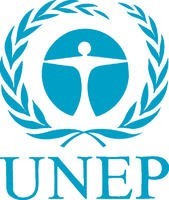
网址:http://www.unep.org
The United Nations Environment Programme (UNEP) is the leading global environmental authority that sets the global environmental agenda, promotes the coherent implementation of the environmental dimension of sustainable development within the United Nations system and serves as an authoritative advocate for the global environment.
UNEP work encompasses:
Assessing global, regional and national environmental conditions and trends
Developing international and national environmental instruments
Strengthening institutions for the wise management of the environment
The major publications of UNEP are the UNEP Annual Report, UNEP yearbook, GEO yearbook, Global environment outlook, Our Planet and Tunza.
(11)United Nations Human Settlements Programme, UNHABITAT

网址:http://www.unhabitat.org
UN-Habitat is the United Nations programme working towards a better urban future. Its mission is to promote socially and environmentally sustainable human settlements development and the achievement of adequate shelter for all.
UN-Habitat, the United Nations programme for human settlements, is at the helm of that change, assuming a natural leadership and catalytic role in urban matters. Mandated by the UN General Assembly in 1978 to address the issues of urban growth, it is a knowledgeable institution on urban development processes, and understands the aspirations of cities and their residents.
For close to forty years, UN-Habitat has been working in human settlements throughout the world, focusing on building a brighter future for villages, towns, and cities of all sizes. Because of these four decades of extensive experience, from the highest levels of policy to a range of specific technical issues, UN-Habitat has gained a unique and a universally acknowledged expertise in all things urban.
The main publications of UNHABITAT are Annual Report, State of the World's Cities, Urban World, etc.
(12)United Nations Research Institute for Social Development, UNRISD

http://www.unrisd.org
The United Nations Research Institute for Social Development (UNRISD) is an autonomous research institute within the UN system that undertakes multidisciplinary research and policy analysis on the social dimensions of contemporary development issues.
Through our work we aim to ensure that social equity, inclusion and justice are central to development thinking, policy and practice. To this end, we:
• focus on the often neglected social content and impacts of development processes and the role of social institutions, relations and actors in shaping development policies and pathways;
• engage researchers, policy makers and civil society actors from around the world in generating and sharing knowledge, in order to shape policy within and beyond the UN system;
• mobilize and strengthen the research capacity of individuals and institutions in developing countries through collaborative inquiry; and
• provide a space for the exchange of ideas, giving prominence to marginalized viewpoints, often challenging mainstream development thinking and offering alternative policy options.
UNRISD was established in 1963 as an autonomous space within the UN system for the conduct of policy-relevant, cutting-edge research on social development that is pertinent to the work of the United Nations Secretariat; regional commissions and specialized agencies; and national institutions.
UNRISD published a certain number of books, research and policy digest, conference news, project paper, briefing paper and occasional paper annually.
(13)United Nations University , UNU

网址:http://www.unu.edu
The United Nations University (UNU) is a global think tank and postgraduate teaching organization headquartered in Japan. You can learn more about the history of UNU, how the University is organized and about its current leadership.
The mission of the UN University is to contribute, through collaborative research and education, to efforts to resolve the pressing global problems of human survival, development and welfare that are the concern of the United Nations, its Peoples and Member States.
In carrying out this mission, the UN University works with leading universities and research institutes in UN Member States, functioning as a bridge between the international academic community and the United Nations system.
Through postgraduate teaching activities, UNU contributes to capacity building, particularly in developing countries.
The main publications of UNU are Annual Report, WIDER Discussion Paper, etc.
2. UN Specialized Agencies
(14)Food and Agriculture Organization of the United Nations, FAO
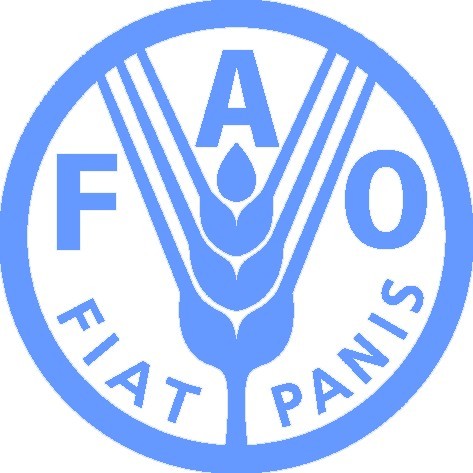
http://www.fao.org
Achieving food security for all is at the heart of FAO's efforts – to make sure people have regular access to enough high-quality food to lead active, healthy lives.
Its three main goals are: the eradication of hunger, food insecurity and malnutrition; the elimination of poverty and the driving forward of economic and social progress for all; and, the sustainable management and utilization of natural resources, including land, water, air, climate and genetic resources for the benefit of present and future generations.
The main publications of IFAO include: FAO Yearbook. Fishery and Aquaculture Statistics, Yearbook of Forest Products, Animal Health Yearbook, Fertilizer Yearbook, and Aquaculture Production Statistics; 5 kinds of flagship publication The State of Food and Agriculture, The State of World Fisheries and Aquaculture, The State of the World’s Forests, The State of Food Insecurity in the World, and The State of Agricultural Commodity Markets; book series Food and Nutrition Paper, Fisheries and Aquaculture Report, Environment and Natural Resources Management Series, etc.
(15)International Civil Aviation Organization, ICAO

http://www.icao.int
The International Civil Aviation Organization (ICAO) is an agency of UN responsible for the management and development of international civil aviation affairs. It was established in 1947 and headquartered in Montreal, Canada. ICAO currently consists of 191 Member States. Its aim and purpose are to develop the regulations and technology of international aviation and to promote the planning and development of the international air transport. Its main businesses are to study the problem of international civil aviation, forming international standards and regulations for the civil aviation, to encourage the use of safety measures, unifying business rules and simplifying the procedures of crossing international border, to coordinate countries on civil aviation economy and legal obligations, and to form standards of every civil aviation technology as well as navigation rules. ICAO also formulates standard for investigation in aviation accident. These standards are complied by the aviation authorities of all Member States of ICAO. In view of the severer problem of air pollution due to the rapid development in aviation industry, the organization undertakes the responsibilities of reducing air pollution and the safety of international navigation. ICAO comprises the Assembly as its highest authority, which is convened by the Council. ICAO’s permanent executive agency is the Secretariat, under which are five departments of aviation, air transport, technology assistance, law, executive service.
The International Civil Aviation Organization publishes all kinds of civil aviation technology, economic, and legal documents in English, French, Spanish and Russian, but mostly are informal publications. Major publications include Annexes to the Convention on International Civil Aviation, ICAO Journal and ICAO Bulletin.
(16)International Fund for Agriculture Development,IFAD

http://www.ifad.org
The International Fund for Agricultural Development (IFAD), a specialized agency of the United Nations, was established as an international financial institution in 1977 as one of the major outcomes of the 1974 World Food Conference. The conference was organized in response to the food crises of the early 1970s that primarily affected the Sahelian countries of Africa. It resolved "an International Fund for Agricultural Development should be established immediately to finance agricultural development projects primarily for food production in the developing countries." One of the most important insights emerging from the conference was that the causes of food insecurity and famine were not so much failures in food production but structural problems relating to poverty, and to the fact that the majority of the developing world's poor populations were concentrated in rural areas.
Since it was created in 1977, IFAD has focused exclusively on rural poverty reduction, working with poor rural populations in developing countries to eliminate poverty, hunger and malnutrition; raise their productivity and incomes; and improve the quality of their lives. The Fund has designed and implemented projects in very different natural, socio-economic and cultural environments. Many IFAD-supported projects and programmes have been in remote areas, and have targeted some of the poorest and most deprived segments of the rural population. IFAD has recognized that vulnerable groups can and do contribute to economic growth. These groups have shown that they can join the mainstream of social and economic development, provided the causes of their poverty are understood and enabling conditions for development are created.
IFAO’s main publications include Annual Report, Rural Poverty Report, IFAD at a Glance, etc.
(17)International Labor Organization, ILO

http://www.ilo.org
The International Labour Organization (ILO) is in charge of formulating and supervising international labour standards. It was founded in 1919 with headquarter in Geneva, Switzerland; later in 1946 became the first specialized agency of the UN System. ILO currently comprises 183 Member States. ILO strives to enhance employment rate and standard of living, as well as the corporation between labour and capital, to improve working conditions, to enlarge social protection network, to secure occupational safety and hygiene, to maintain worldwide lasting peace and to construct and safeguard social justice. Its main businesses include legislating for international labour, formulating treaties and proposals, and providing technological assistance and encouraging technological cooperation. ILO carries out a principle of three groups, i.e. the delegates of government, workers and employers form the delegates of each Member State. Each of the three groups is involved in the conferences and agencies of ILO and it votes independently. The agencies under ILO include International Labour Conference, the Governing body, and the Secretariat.
ILO’s main publications include International Labour Review, Labour Law Documents, Bulletin of Labour Statistics, Social and Labour Bulletin, Year Book of Labour Statistics, Conditions of Work Digest, World Employment Report, World Labour Report, Key Indicators of the Labour Market, The Cost of Social Security, etc.
(18)International Maritime Organization,IMO

http://www.imo.org
As a specialized agency of the United Nations, IMO is the global standard-setting authority for the safety, security and environmental performance of international shipping. Its main role is to create a regulatory framework for the shipping industry that is fair and effective, universally adopted and universally implemented.
In other words, its role is to create a level playing-field so that ship operators cannot address their financial issues by simply cutting corners and compromising on safety, security and environmental performance. This approach also encourages innovation and efficiency.
Shipping is a truly international industry, and it can only operate effectively if the regulations and standards are themselves agreed, adopted and implemented on an international basis. And IMO is the forum at which this process takes place.
International shipping transports about 90 per cent of global trade to peoples and communities all over the world. Shipping is the most efficient and cost-effective method of international transportation for most goods; it provides a dependable, low-cost means of transporting goods globally, facilitating commerce and helping to create prosperity among nations and peoples.
The world relies on a safe, secure and efficient international shipping industry – and this is provided by the regulatory framework developed and maintained by IMO.
IMO measures cover all aspects of international shipping – including ship design, construction, equipment, manning, operation and disposal – to ensure that this vital sector for remains safe, environmentally sound, energy efficient and secure.
Shipping is an essential component of any programme for future sustainable economic growth. Through IMO, the Organization’s Member States, civil society and the shipping industry are already working together to ensure a continued and strengthened contribution towards a green economy and growth in a sustainable manner. The promotion of sustainable shipping and sustainable maritime development is one of the major priorities of IMO in the coming years.
Energy efficiency, new technology and innovation, maritime education and training, maritime security, maritime traffic management and the development of the maritime infrastructure: the development and implementation, through IMO, of global standards covering these and other issues will underpin IMO's commitment to provide the institutional framework necessary for a green and sustainable global maritime transportation system.
Every year, IMO publishes treaties, agreements and rules, decisions of agencies, documents and every kind of technological regulations, standards, etc. For example, Assembly … session : Resolutions and Other Decisions, Convention on the Safety of Life at Sea, SOLAS, International Maritime Dangerous Goods Code, Code of Safe Practice for Solid Bulk Cargoes, International Aeronautical and Maritime Search and Rescue Manual, etc.
(19)International Monetary F und, IMF
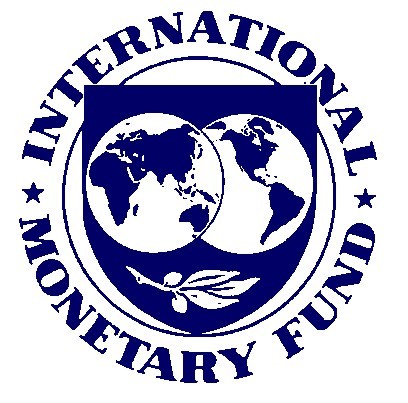
http://www.imf.org
The IMF, also known as the Fund, was conceived at a UN conference in Bretton Woods, New Hampshire, United States, in July 1944. The 44 countries at that conference sought to build a framework for economic cooperation to avoid a repetition of the competitive devaluations that had contributed to the Great Depression of the 1930s.
The IMF's responsibilities: The IMF's primary purpose is to ensure the stability of the international monetary system—the system of exchange rates and international payments that enables countries (and their citizens) to transact with each other. The Fund's mandate was updated in 2012 to include all macroeconomic and financial sector issues that bear on global stability.
The IMF’s fundamental mission is to ensure the stability of the international monetary system. It does so in three ways: keeping track of the global economy and the economies of member countries; lending to countries with balance of payments difficulties; and giving practical help to members.
Being rich and authoritative in content and data, the publications of IMF are important literature for many researchers. Its characteristic publications are four statistical yearbooks, i.e. International Financial Statistics Yearbook, Direction of Trade Statistics Yearbook, Government Finance Statistics Yearbook and Balance of Payments Statistics Yearbook. Each of this four statistical yearbooks has a corresponding journal, published monthly or quarterly, strengthening the effectiveness in doing statistics.
Other major publications include Global Financial Stability Report, Fiscal Monitor, IMF's Annual Report, etc. In addition, there are many kinds of book series and periodicals. Book series include IMF Country Report, IMF Policy Discussion Paper, IMF Working Paper. Periodicals include World Economic Outlook (annual), IMF Survey (semimonthly), Finance & Development (quarterly), etc.
(20)国际电信联盟(International Telecommunication Union,ITU)

http://www.itu.int
ITU allocate global radio spectrum and satellite orbits, develop the technical standards that ensure networks and technologies seamlessly interconnect, and strive to improve access to ICTs to underserved communities worldwide.ITU is committed to connecting the entire world's people – wherever they live and whatever their means. Through our work, we protect and support everyone's fundamental right to communicate.Today, ICTs underpin everything we do. They help manage and control emergency services, water supplies, power networks and food distribution chains. They support health care, education, government services, financial markets, transportation systems, e-commerce platforms and environmental management. And they allow people to communicate with colleagues, friends and family anytime, and almost anywhere.
With the help of our global membership, ITU brings the benefits of modern communication technologies to people everywhere in an efficient, safe, easy and affordable manner. ITU membership reads like a Who's Who of the ICT sector. We're unique among UN agencies in having both public and private sector membership. So in addition to our 193 Member States, ITU membership includes ICT regulators, many leading academic institutions and some 700 tech companies.
The main publications of ITU are Yearbook of Statistics: Telecommunication/ICT Indicators, Measuring the Information Society, The World in [year]: ICT Facts and Figures, Latest Global and Regional ICT Statistics, Arab States Telecommunication Indicators, Telecommunication Indicators in the Eurostat Area, ITU news.
(21)United Nations Educational, Scientific and Cultural Organization, UNESCO
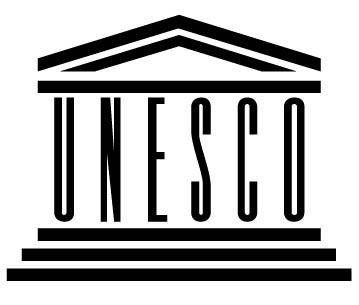
http://www.unesco.org
In 1945, UNESCO was created in order to respond to the firm belief of nations, forged by two world wars in less than a generation, that political and economic agreements are not enough to build a lasting peace. Peace must be established on the basis of humanity’s moral and intellectual solidarity.
UNESCO strives to build networks among nations that enable this kind of solidarity, by:
Mobilizing for education: so that every child, boy or girl, has access to quality education as a fundamental human right and as a prerequisite for human development.
Building intercultural understanding: through protection of heritage and support for cultural diversity. UNESCO created the idea of World Heritage to protect sites of outstanding universal value.
Pursuing scientific cooperation: such as early warning systems for tsunamis or trans-boundary water management agreements, to strengthen ties between nations and societies.
Protecting freedom of expression: an essential condition for democracy, development and human dignity.
Today, UNESCO's message has never been more important. We must create holistic policies that are capable of addressing the social, environmental and economic dimensions of sustainable development. This new thinking on sustainable development reaffirms the founding principles of the Organization and enhances its role: In a globalized world with interconnected societies, intercultural dialogue is vital if we are to live together while acknowledging our diversity. In an uncertain world, the future of nations depends not only on their economic capital or natural resources, but on their collective ability to understand and anticipate changes in the environment - through education, scientific research and the sharing of knowledge. In an unstable world - marked by fledgling democratic movements, the emergence of new economic powers and societies weakened by multiple stress factors – the educational, scientific and cultural fabric of societies – along with respect for fundamental rights - guarantees their resilience and stability. In a connected world - with the emergence of the creative economy and knowledge societies, along with the dominance of the Internet, the full participation of everyone in the new global public space is a prerequisite for peace and development.
The main publications of UNESCO include Statistical Yearbook, International Yearbook of Education, UNESCO Yearbook on Peace and Conflict Studies, and all kinds of professional statistical figures, such as the statistics of science and technology, illiterate, education, radio and television, student registration, etc. In addition, UNESCO publishes reports, for instances, World Education Report, World Social Science Report, World Culture Report, World Communication and Information Report, World Heritage. It also publishes periodicals including The UNESCO Courier, International Social Sciences Journal, Copyright Bulletin, etc.
(22)United Nations Industrial Development Organization, UNIDO

http://www.unido.org
UNIDO is the specialized agency of the United Nations that promotes industrial development for poverty reduction, inclusive globalization and environmental sustainability
The mandate of the United Nations Industrial Development Organization (UNIDO) is to promote and accelerate inclusive and sustainable industrial development in developing countries and economies in transition.
In recent years, UNIDO has assumed an enhanced role in the global development agenda by focusing its activities on poverty reduction, inclusive globalization and environmental sustainability. The Organization draws on four mutually reinforcing categories of services: technical cooperation, analytical and policy advisory services, standard setting and compliance, and a convening function for knowledge transfer and networking.
UNIDO's vision is a world where economic development is inclusive and sustainable and economic progress is equitable. The Organization focuses on three main thematic areas:
· Poverty reduction through productive activities
· Trade capacity-building
· Energy and environment
The main publications of UNIDO include Industrial Development Report, International Yearbook of Industrial Statistics, Annual Report, etc.
(23)Universal Postal Union,UPU

http://www.upu.int
Established in 1874, the Universal Postal Union (UPU), with its headquarters in the Swiss capital Berne, is the second oldest international organization worldwide.
With its 192 member countries, the UPU is the primary forum for cooperation between postal sector players. It helps to ensure a truly universal network of up-to-date products and services.
In this way, the organization fulfills an advisory, mediating and liaison role, and provides technical assistance where needed. It sets the rules for international mail exchanges and makes recommendations to stimulate growth in mail, parcel and financial services volumes and improve quality of service for customers.
The UPU consists of 4 bodies, which are the Congress, the Council of Administration (CA), the Postal Operations Council (POC), and the International Bureau (IB); and 2 cooperatives, which are Telematics Cooperative and EMS Cooperative.
The major publications of UPU include Postal Statistics, UPU Programme & Budget, Multilingual Vocabulary of the International Postal Service, Acts of the UPU… Congress, etc. The UPU also publishes periodicals including Union Postale.
(24)World Bank Group, WB

www.worldbank.org
The World Bank Group has set two goals for the world to achieve by 2030:
· End extreme poverty by decreasing the percentage of people living on less than $1.25 a day to no more than 3%
· Promote shared prosperity by fostering the income growth of the bottom 40% for every country
The World Bank is a vital source of financial and technical assistance to developing countries around the world. It is not a bank in the ordinary sense but a unique partnership to reduce poverty and support development. The World Bank Group comprises five institutions managed by their member countries.
Established in 1944, the World Bank Group is headquartered in Washington, D.C. We have more than 10,000 employees in more than 120 offices worldwide.
The major publications of WB include World Development Indicators, World Development Report, World Bank Annual Report, World Bank Atlas, Global Development Finance, African Development Indicators, etc. WB also publishes book series including A World Bank Country Study—China, China 2020, World Bank Technical Paper, Policy Research Working Paper, etc.
(25)World Health Organization,WHO

http://www.who.int
The World Health Organization (WHO) is an agency under UN System responsible for directing and coordinating public health affairs. With headquarter located in Geneva, WHO was founded on April 7, 1948, which is the World Health Day. It currently consists of 194 Member States. WHO strives for everyone worldwide to reach the best possible state of health. Here are the major functions of WHO: prevent the spread of chronic and local diseases; provide and improve the teaching and training on public health, medical treatment and related matter; promote international standards for biological products. Moreover, being a leading organization responsible for public health issues worldwide, WHO plans the agenda for health research, formulates regulations and standards, provide technical assistance to the countries in need, and monitors and evaluates the trend of public health. It comprises World Health Assembly as its highest authority. The Executive Board is in charge of carry out the decisions, policies and missions made in the Assembly. The Convention Secretariat is the permanent agency of WHO.
The main publications of WHO include: World Health Statistics, International Health Regulation, International Travel and Health, The International Classification of Diseases, International Pharmacopoeia. The periodicals of WHO include Bulletin of the World Health Organization, Weekly Epidemiological Record, WHO Drug Information, etc.
(26)World Intellectual Properties Organization, WIPO
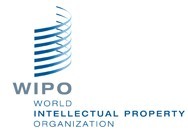
http://www.wipo.int
The World Intellectual Property Organization (WIPO) in Geneva is a governmental international organization that is committed to promoting the use of and protection for human intelligence works. WIPO was founded in 1967 and is a specialized agency of the United Nations System responsible for the management of intellectual property rights affairs. It currently contains 185 Member States. The aim of WIPO is to foster protection for intellectual properties worldwide, ensure executive cooperation between different unions of intellectual properties, through cooperation between countries and, if necessary, with other international organizations. The main function of WIPO is to manage the executive works of 23 unions based on the multilateral treaties about aspects of patent, brand and copyright. Moreover, WIPO handles the legal and executive affairs on intellectual properties. At present, it is in charge of the 24 international treaties dealing with protection of intellectual properties.
WIPO’s publications cover many aspects of intellectual property rights: text of treaties, agreements, laws and regulations, the international classification and international standards, manuals and guidelines.
The major publications of WIPO include: World Intellectual Property Report,Industrial Property Statistics, World Intellectual Property Indicators,Copyright and Neighboring Rights Laws and Treaties,WIPO Intellectual Property Handbook,General Information on the … edition of the International Patent Classification,Intellectual Property Laws and Treaties, Copyright,Industrial Property, etc.
(27)World Meteorological Organization,WMO

http://www.wmo.int
The World Meteorological Organization (WMO) is a specialized agency of the United Nations. It is the UN system's authoritative voice on the state and behaviour of the Earth's atmosphere, its interaction with the oceans, the climate it produces and the resulting distribution of water resources.
WMO has a membership of 191 Member States and Territories (on 1 January 2013). It originated from the International Meteorological Organization (IMO), which was founded in 1873. Established in 1950, WMO became the specialized agency of the United Nations in 1951 for meteorology (weather and climate), operational hydrology and related geophysical sciences.
As weather, climate and the water cycle know no national boundaries, international cooperation at a global scale is essential for the development of meteorology and operational hydrology as well as to reap the benefits from their application. WMO provides the framework for such international cooperation.
Since its establishment, WMO has played a unique and powerful role in contributing to the safety and welfare of humanity. Under WMO leadership and within the framework of WMO programmes, National Meteorological and Hydrological Services contribute substantially to the protection of life and property against natural disasters, to safeguarding the environment and to enhancing the economic and social well-being of all sectors of society in areas such as food security, water resources and transport.
WMO’s main publications include WMO Statement on the Status of the Global Climate in [year], Annual Report of the World Meteorological Organization, WMO Bulletin, MeteoWorld.
In addition, it has also published a world weather conference and executive council documents, reports, and the meeting records, such as the Abridged Final Report of all the previous meetings of Commission for Agricultural Meteorology, and Abridged Final Report with Resolutions of all the previous meetings of 6 regional associations, etc.
(28)World Tourism Organization,UNWTO

http://www.unwto.org
The World Tourism Organization (UNWTO) is the United Nations agency responsible for the promotion of responsible, sustainable and universally accessible tourism.
As the leading international organization in the field of tourism, UNWTO promotes tourism as a driver of economic growth, inclusive development and environmental sustainability and offers leadership and support to the sector in advancing knowledge and tourism policies worldwide.
UNWTO encourages the implementation of the Global Code of Ethics for Tourism, to maximize tourism’s socio-economic contribution while minimizing its possible negative impacts, and is committed to promoting tourism as an instrument in achieving the United Nations Millennium Development Goals (MDGs), geared towards reducing poverty and fostering sustainable development.
UNWTO generates market knowledge, promotes competitive and sustainable tourism policies and instruments, fosters tourism education and training, and works to make tourism an effective tool for development through technical assistance projects in over 100 countries around the world.
UNWTO’s membership includes 156 countries, 6 Associate Members and over 400 Affiliate Members representing the private sector, educational institutions, tourism associations and local tourism authorities.
The main publications of UNWTO include UNWTO News, Tourism Market Trends, Yearbook of Tourism Statistics, Compendium of Tourism Statistics, etc.
3. UN Related Organizations
(29)International Atomic Energy Agency, IAEA

http://www.iaea.org
The International Atomic Energy Agency (IAEA) is an international governmental organization for cooperation of science and technology in the field of atomic energy. The IAEA is in charge of atomic safety and survey in regions. It was founded in October 1957, with headquarters in Vienna, and currently consists of 153 Member States. IAEA is the world’s cooperating center for atomic industry. Being related with the UN System as an independent international organization, IAEA’s relation with the UN System is under control by special treaty. The main functions of IAEA are to supervise and peacefully utilize atomic energy. Since its establishment, IAEA has done much work on these aspects including hosting the formulation process on a series of international treaties about the standards of nuclear safety, radiation safety and management on nuclear waste disposal such as Convention on Early Notification of a Nuclear Accident and Convention on Assistance in the Case of a Nuclear Accident Or Radiological Emergency. The structure of IAEA comprises the General Conference, the Secretariat and different councils.
The major publications of IAEA include international safety standards, technical guidelines, meeting minutes and science reports, such as the IAEA Yearbook, Annual Report and the meeting minutes of all the past International Conference on the Peaceful Uses of Atomic Energy - Peaceful Uses of Atomic Energy; Safety Standards Series, Safety report Series, Human Health Series, Nuclear Energy Series and Nuclear Security Series; Atomic Energy Review, IAEA Bulletin and Highlights of Activities.
(30) World Trade Organization , WTO

http://www.wto.org
The World Trade Organization (WTO) is an international organization independent of the United Nations. The WTO is the successor of General Agreement on Tariffs and Trade (GATT). It started working on January 1, 1995, with headquarters in Geneva. It currently contains 156 Member States. WTO is in charge of monitoring the world economy and trading order, with fundamental principle and aim of promoting free trade by carrying out policies of open market, non-discriminatory and fair trade. Being the biggest multi-lateral trading organization in the world, WTO is one of the three pillars of current world economic system with the World Bank (WB) and International Monetary Fund (IMF). The main functions of WTO are to administer every trading treaty, provide its Member States venue for multi-lateral trading negotiation as well as frames for the negotiation results; solve the trade dispute between its Members; regularly review the policies and laws on trade of every Member State; and coordinate the relation between WB and IMF.
The major publications of WTO include Uruguay Round Agreements, Uruguay Round-Final Act, World Trade Report, International Trade Statistics, Annual Report, Dispute Settlement Reports, World Tariff Profiles, Trade Policy Review, etc.